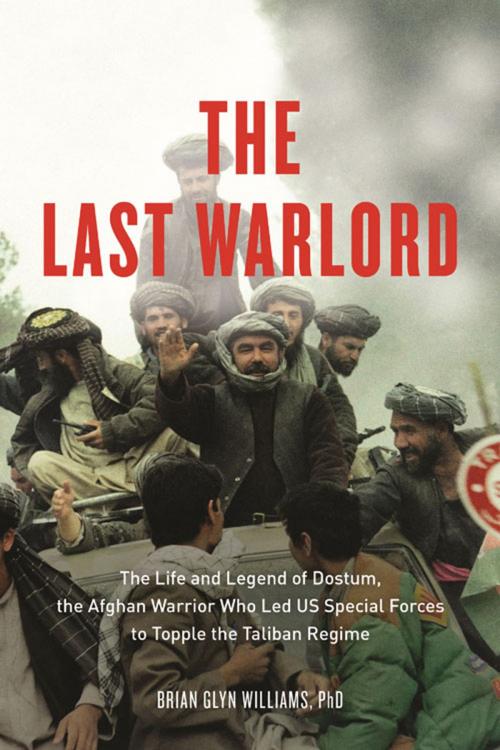The Last Warlord
The Life and Legend of Dostum, the Afghan Warrior Who Led US Special Forces to Topple the Taliban Re
Biography & Memoir, Political, Nonfiction, History, Military| Author: | Brian Glyn Williams, PhD | ISBN: | 9781613748039 |
| Publisher: | Chicago Review Press | Publication: | September 1, 2013 |
| Imprint: | Chicago Review Press | Language: | English |
| Author: | Brian Glyn Williams, PhD |
| ISBN: | 9781613748039 |
| Publisher: | Chicago Review Press |
| Publication: | September 1, 2013 |
| Imprint: | Chicago Review Press |
| Language: | English |
Chronicling the spectacular rise to power of General Abdul Rashid Dostum, this is an intimate profile of the one of the most powerful warlords to have dominated Afghanistan in the years since the Soviet withdrawal in the late 1980s. His rise from simple peasant villager to warrior against the repressive policies of the Taliban and Al Qaeda is told by one of the few outsiders to be accepted into Dostum’s stronghold in the northern deserts of Afghanistan. Thanks to this unprecedented access, author Brian Glyn Williams was able to conduct lengthy interviews with Dostum and his family, as well as his subcommanders, local chieftains, mullahs, Taliban enemies, prisoners of war, and women’s rights activists. What emerges is an intensely personal account of the Mongol warlord, detailing his childhood, motivations, hopes for his country, and conviction that it is time for a new generation of Western-trained technocrats to shape his country’s destiny. With the drawing down of U.S. troops in 2014 and Dostum poised to reenter the world stage to fight a resurgent Taliban, this timelyanalysis provides important historical context to the controversy swirling around Afghanistan’s warlord culture and is an essential contribution to the debate on Afghanistan’s future.
Chronicling the spectacular rise to power of General Abdul Rashid Dostum, this is an intimate profile of the one of the most powerful warlords to have dominated Afghanistan in the years since the Soviet withdrawal in the late 1980s. His rise from simple peasant villager to warrior against the repressive policies of the Taliban and Al Qaeda is told by one of the few outsiders to be accepted into Dostum’s stronghold in the northern deserts of Afghanistan. Thanks to this unprecedented access, author Brian Glyn Williams was able to conduct lengthy interviews with Dostum and his family, as well as his subcommanders, local chieftains, mullahs, Taliban enemies, prisoners of war, and women’s rights activists. What emerges is an intensely personal account of the Mongol warlord, detailing his childhood, motivations, hopes for his country, and conviction that it is time for a new generation of Western-trained technocrats to shape his country’s destiny. With the drawing down of U.S. troops in 2014 and Dostum poised to reenter the world stage to fight a resurgent Taliban, this timelyanalysis provides important historical context to the controversy swirling around Afghanistan’s warlord culture and is an essential contribution to the debate on Afghanistan’s future.















